By rejecting the proposed Iran resolution the UN finally stood up for itself
Failing to secure backing from United Nations Security Council (UNSC) members in July, by August 11 Washington had presented a draft resolution to the UNSC with a view to extending the UN arms embargo against Iran, which expires on October 18, in keeping with the terms of the Joint Comprehensive Plan of Action (JCPOA) or Iran Nuclear Deal.
The US proposed resolution inevitably failed. Could this mean that the US will pull back or push further to destroy the JCPOA and pressure Iran? If the latter, how would it go about going so?
But what if the draft resolution had passed and what military bearing would it have had on Iran?
Is this the end of the story?
Vali Esmaiili, an MP on the Social Affairs Committee from Ardebil, holds that the US often operates on different fronts, and that it will most certainly try to make a fuss around Iran, mainly in the member states of the Economic Cooperation Organization (ECO).
The Americans, in cahoots with the Zionist regime of Israel, will make arrangements for a new scenario to facilitate interference with Iran’s domestic affairs. The United Arab Emirates was a starting point. I think that this scenario will continue so that new schemes will be drawn up against Iran and new sanctions are not unlikely.
Vali Esmaiili MP, Social Affairs Committee
How did the JCPOA change Iran’s international standing?
With hindsight we see now that the talks held in the run-up to the Joint Comprehensive Plan of Action (JCPOA) where instrumental in proving the legality and legitimacy of the positions of the Islamic Republic of Iran and the sovereign rights of the Iranian nation and make the world public opinion believe it. Let’s not forget that prior to the JCPOA Iran was subject to Chapter 7 of the UN Charter, [allowing for military action].
Yet today, only a tiny state stands with the US in its draft resolution for the extension of arms embargo against Iran. I think that the US has to reconsider its position.
Gholamreza Nouri, MP, Agriculture Committee
The US Secretary of State Mike Pompeo threatened that should the resolution fail, his country would trigger the snap-back mechanism. Should that come to pass, it would literally snap all pre-JCPOA UN sanctions back on Iran.
Can the US do that?
Since the US is no longer party to the JCPOA, as the Russian and Chinese foreign ministers pointed out, it is not entitled to anything under any of the clauses of that deal.
Surprisingly the EU Foreign Policy Chief, Josep Borrell, and former National Security Advisor to President Trump, John Bolton, agree the US should not invoke a snap back mechanism.
Why would Bolton be against a snap back?
Mr Bolton, an architect of the US withdrawal from the deal in 2018, was at the time National Security Advisor to President Trump. He now says the resolution is not worth the risk; it’ll weaken the US’s veto power. Pandering to the JCPOA in other words, would only place importance on it, when the US has pulled OUT of that deal.
To trigger, or not to trigger?
All and sundry are aware that the US withdrew from the JCPOA two years ago, so they cannot claim to still be a party liable to initiating that trigger mechanism. To do so they need the cooperation of the signatories to the deal or memberstates.
Iran Russia and china have all stressed their strong opposition and believe that the US is no more a party to the deal so it is not liable for trigger mechanism.
Mostafa Khosh Cheshm, Political Analyst
Was the revised resolution any better?
It was more polite, at least, rather than pushing to extend the embargo indefinitely, it said it would extend the arms embargo to prevent Iran from freely buying and selling conventional weapons,” and “shall continue to apply until the Security Council decides otherwise.” Fortunately, much as expected, the Security Council voted not to extend the embargo.
US resolution shamefully dismissed
Even the traditional allies of the US, despite months of efforts by the US to secure votes against Iran, refused to cooperate with Washington and abstained. And two big powers Russia and China rejected the resolution. This implies US hegemony, which it has been pursuing for half a century now, has come to an end. US officials were claiming to enjoy the same hegemony at the global level, despite evidence to the contrary.
What if the resolution had passed?
A more pertinent question would be whether Iran is militarily independent enough for that not to have even mattered.
When it comes to defending Iran, one might think that Iran is not much in need, of course everyone would like to see the high tech production of modern world in terms of arms manufactured by diff countries; definitely they have something to offer. But still it couldn’t keep Iran back and couldn’t harm Iranian defense if sanctions are extended.
Mostafa Khosh Cheshm, Political Analyst
How self-sufficient is Iran’s defence capability?
To mark Defence Industry Day President Rouhani is to unveil a number of significant defense achievements.
Defense Minister Hatami said those would be a mere sample of the numerous naval missile and drone-related achievements. “We have managed to fulfill more than 90 percent of our defense needs with good quality, in spite of sanctions. And today Iran is number one in the region, for producing defense equipment”; he said.
"We are determined to defend our country and the regional states' security …”
"Wherever we need to change or enhance our defense achievements, we are able to turn it into a new product and use it," he added.
Iran is not a big spender on arms, unlike Saudi Arabia or even some of the smallest regional states. But it tends to make the most of the least, for unconventional warfare when in need to defend its territory.
From purchaser to provider
Iran has boosted its arms development capabilities to such an extent that many nations are currently mulling the possibility of buying arms from Iran, which has rapidly grown into a center of excellence in terms of missile manufacturing.
Today, missiles are serving as our tool of power, tool of deterrence.
Sara Fallahi, MP, National Security and Foreign Policy Committee
Some of Iran’s Capabilities
As a regional heavyweight and keyholder to strategic chokepoints such as the strait of Hormuz, Iran feels responsible for and in charge of protecting the Persian Gulf waters.
Tehran’s relatively modest defense investments in recent decades have yielded some impressive niche capabilities, enabling long-range precision strike, naval guerrilla warfare, which include, but are not limited to, the production of small arms, light and heavy weapons, munitions of all types, drones, rockets/missiles (including antiship, surface-to-surface, and SAM systems), light armored vehicles, and small warships (e.g., midget submarines and frigates).
Where does the US stand in its foreign policy?
A new chapter has opened for US unilateralist foreign policy. From now on, the Americans must show prudence and they will not fall into such self-imposed snares. The dismal failure of the anti Iran proposal presented at the UNSC taught them a big lesson; that they would refrain from unilateralism.
I personally think that they would not be able to take any other audacious act, like triggering the snapback mechanism. The US’s failure to win consensus at the UN Security Council showed that it has lost its international standing.
Gholamreza Nouri, MP, Agriculture Committee
It goes without saying, of course, that the US’s action—one of many—was in beach of international law to begin with, or at the very least disrespectful to international norms, reversing that action would be saving those norms and the reputation of organizations that uphold them.
What really matters here though, is that a trend of breaching the law was broken here; abnormal American actions that were normalized by persistent pressure and bullying.
Don’t hold your breath waiting for US to act legally
Sara Fallahi, MP, National Security and Foreign Policy Committee, contends that waiting for the Americans to honor international laws and obey international institutions would be a waste of our time. The UN Security Council, where the US wields veto power, opposes many US actions and forms of misconduct; however, the US oversteps all bounds.
President Trump has unilaterally terminated many international treaties because he has concluded that those treaties were no longer securing US interests.
Sara Fallahi, MP, National Security and Foreign Policy Committee
Does the US even care about the legality of its actions?
Prior to the groundbreaking rejection of the illogical US demand—the proposed arms embargo resolution against Iran—the general consensus was that legality is irrelevant when it comes the USA. Washington doesn’t care about the law and will do as it wishes with impunity. But now the Security Council did itself proud. It proved that it doesn’t matter if the US doesn’t care about the law. Because although it acts as though it is above the law, it is not above legal international bodies. Not any longer, anyway.
In demanding to extend the arms embargo, the US is in breach of UNSC resolution 2231, which is the resolution that legally endorsed the JCPOA.
International law, US style
When the US administration of Donald J. Trump unilaterally pulled out of the JCPOA, a move which was a disrespectful violation of UNSC resolution 2231, to which the US was a signatory. When an international treaty is signed, sealed and brought into play it, and all its constituent mechanisms, becomes subject to international law.
A clause in the JCPOA stipulates, quite clearly, that should any dispute arise between the signatories a commission shall be established to settle the dispute.
The Americans, instead of forwarding any possible opposition to the JCPOA provisions to said committee, have chosen to pull out of the JCPOA.
Kheirollah Parvin, University of Tehran, Faculty Member
Why include the snap back mechanism?
When the JCPOA accord between Iran and the five permanent UNSC members plus Germany was announced in 2013, the then US Secretary of State John Kerry emphasized the snapback clause as a safety net for the US, should Iran fail to keep its end of the bargain.
Iran’s obligation was to limit its peaceful nuclear programme in return for UN sanctions on Iran being lifted. Iran did commit, as testified 15 times by the UN nuclear watchdog the IAEA. However, the US unilaterally pulled out of the multilateral deal and has been campaigning against it as if it were still party to the deal! How can that be?
Deal-breaker supreme
The United States of America, which under the Trump administration has become synonymous with deal breaking on an international scale, seems bent on damaging the JCPOA until it is beyond repair.
The present administration, according to Mr Zarif, has become the first government in UN history that not just violates a binding resolution it itself sponsored, but also punishes those governments and companies that uphold international law by implementing its provisions. It has been seeking to supplant international law with its own domestic laws.
Sara Fallahi MP, National Security and Foreign Policy Committee, asserts that we, Iran, have to be prepared for such diversionary tactics which are intended to waste our time and keep the world occupied at the same time, as a matter of routine.
“The Americans are trying their best to undermine all of Iran’s strengths. It’s because the only nation resisting US interests and forming a front of resistance against the US and political entities following US order is Iran. The US’s injustice-based interests, and not Americans’ interests, have been definitely threatened,” said Fallahi.
Was undermining Iran the only target?
The US’s longer-term target appears to have been the UN itself and not just Iran. The US seeks to use the UN itself to effectively destroy the world body.
The power of veto wielded by the US and other four permanent members has become a tool in their hands to behave with impunity. It allows them to do whatever they desire.
Freedom does not mean I can do whatever I want. Rather, it means I deserve my rights. Such right is recognized for only five states. The power of veto is an unjust power they are monopolizing for themselves. I want to say the UN structure is based on discrimination.
Sara Fallahi, MP, National Security and Foreign Policy Committee
Had the resolution been ratified it would have not only affected Iran. Ellie Geranmayeh, an Iran expert at the European Council on Foreign Relations (ECFR) said:
“If we are in a situation where there is such a fundamental clash between the United States and other permanent members [of the Security Council], they are going to have a much more difficult time pushing through resolutions on areas where the United States may have previously been able to persuade Russia and China to come aboard.”
The purpose of the UN
The United Nations was set up in order to expound and establish a foundation for international law, formed on the basis of bilateral and multilateral treaties between nations and also on the basis of international norms.
The UN is expected to safeguard peace and security. The UN Security Council, as the discerning body, is the highest executive body to implement decisions made based on international law and the UN Charter.
The UN Security Council is expected to safeguard peace and security. It should not become a venue for one permanent member of the UN Security Council to implement its own decision. Like other permanent member states, this specific state has been unequally awarded the power of veto, which enables it to dismiss any resolution proposed by other countries.
Kheirollah Parvin, University of Tehran, Faculty Member
Why propose a resolution which is bound to fail
China and Russia had warned beforehand that they would veto the proposal in the event that the resolution won the minimum 9 votes out of 15 at the Security Council. Why? Maybe it relates to a temperament born of misconception or complacency. Imagine a TEENAGE brat, with the intellect of a child but strength of an adult.
Writing in the Global Times, Iranian Foreign Minister, Mohammad Javad Zarif, calarifies: “The U.S. fickleness and unpredictability have nothing to do with masterful implementation of game theory. Rather whether it comes to its mismanagement of COVID-19 at home or it’s undermining of peace and stability abroad, the current regime in Washington has no real plan except to frontally assault those who stand by the rule of law.”
US expansionism, injustice and discrimination
Expansionism, injustice and discrimination have become the heart and soul of US politics. The US can be seen to owe its power and strength to the Third World, where Washington has shown its bloodthirsty behaviour in a bid to safeguard the interests of US political, economic and military enterprises in the region.
If we imagine a political-economic-military triangle for the US, we will see that political, economic and military officials are close relatives, either by affinity or by consanguinity or ideologically.
Sara Fallahi, MP, National Security and Foreign Policy Committee
By disregarding all warnings and calls to caution, Washington has insulted the very notion of multilateralism, and totally disregarded deep-rooted concerns of its traditional western allies, who are party to the JCPOA.
Would the passage of the resolution not have been too costly?
Since most international bodies are constructs of Washington, as [Former US Secretary of State Condoleezza] Rice said the UN was created for the Third World, borrowing from Mrs. Thatcher, which apparently means it cannot hold the US to account for its actions.
When the US invaded Iraq, the US military action was billed as illegal. But Rice said the UN was created for the Third World. She meant that the US was not required to respect UN norms.
Sara Falahi MP, National Security and Foreign Policy Committee
What happens now?
The west was mainly concerned that Iran may, in response, pull out of the nuclear deal and even the NPT nuclear non-proliferation treaty which supervises nuclear activity of its member-states. As it is, Iran sped up its nuclear programme after its western partners to the deal failed to practically operate INSTEX. That’s the trade instrument to counter US secondary sanctions against this country, by cutting the dollar out of financial dealings with Iran.
If the US’s main goal in trying to extend the arms embargo was to reduce the possibility of Iran’s deterrence, it looks like a lost cause. Since Iran’s determination for developing its dterrent force, is driven mainly by the isolation and shortages it suffered during the 8-year war with Iraq.
How far would Iran go to resist US suppression of its defence capabilities?
Had the resolution been passed it would have come as no surprise. We have had many such resolutions passed against us. Such decisions have already been made against us, we have been slapped with numerous sanctions, but we have never been swayed from our path. This was no exception. It would not have hurt us even if it had been approved.
Even if it had been adopted, it would not have any impact on our arms and defense industry thanks to our remarkable progress. We have made progress while sanctions were in effect. We are not happy because we can now buy arms and military hardware. We are happy because the world is appreciating the rightful stance of the Islamic Republic and the Iranian people.
Gholamreza Nouri MP, Agriculture Committee
Trumps shows “interest in talks with Iran”
US President Trump claims talks would be inevitable if he were reelected. His way of showing interest in TALKS is strange to say the least. But what if the US changed course; might Iran then hold talks with the “outlaw bully”, as FM Zarif would put it?
The Leader of the Islamic Republic of Iran, Ayatollah Seyyed Ali Khamenei, has made it crystal clear that negotiations [with the US] would be meaningful if the US and its leaders would sit down with Iranian counterparts for mutually beneficial and respectful talks on an equal footing.
It would not be acceptable that the US continue its sanctions against us and Iran agree to talks. Neither Iran or any other independent government would accept such conditions. The Americans have to stop their bullying and sit with Iran under equal conditions.
Vali Esmaiili MP, Social Affairs Committee
Whatever the pros and cons in an argument, what matters is that logic and justice have the final word. This time round, the UN Security Council and international community faced their moment of truth in deciding to respect the rule of law over the law of the jungle. They showed the playground bully that enough is enough. The future will uncover if the lesson has been learnt and remembered.
Why Iran’s Leader refused special protection, leading from the front until last breath
Hezbollah strikes Israeli surveillance, military base in Golan Heights, occupied lands
Iran holds funeral for 165 children murdered in US-Israeli aggression
Iran destroys main command building, headquarters of US air base in Bahrain
US embassy in Saudi capital set ablaze after drone attack: Riyadh
Saudi Arabia, Qatar foiled Mossad bombing plots on their soil: Tucker Carlson
Iran's firm response will last as long as attacks do: Envoy
Shedding of American, Iranian blood on ‘Israel firsters’: Iran FM


















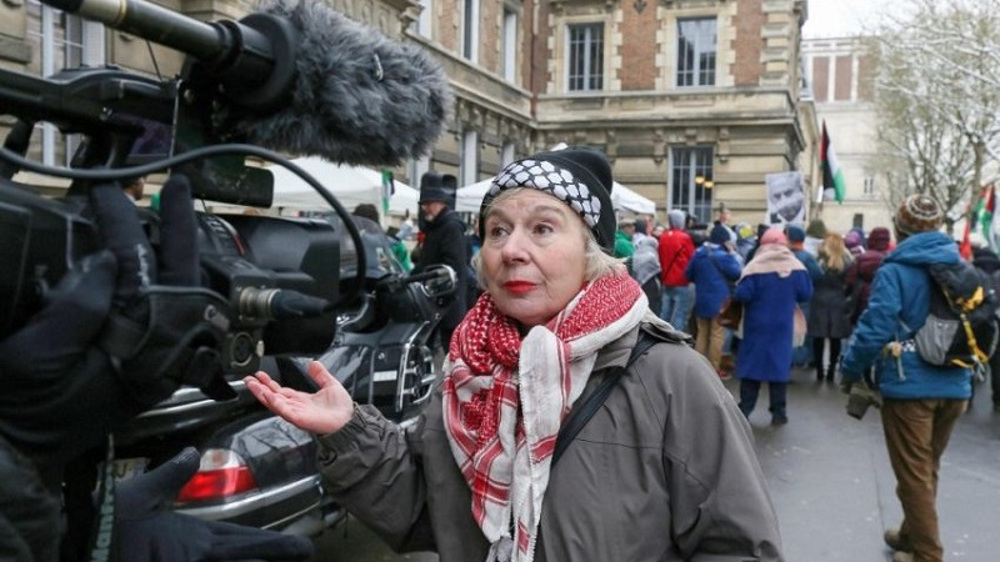
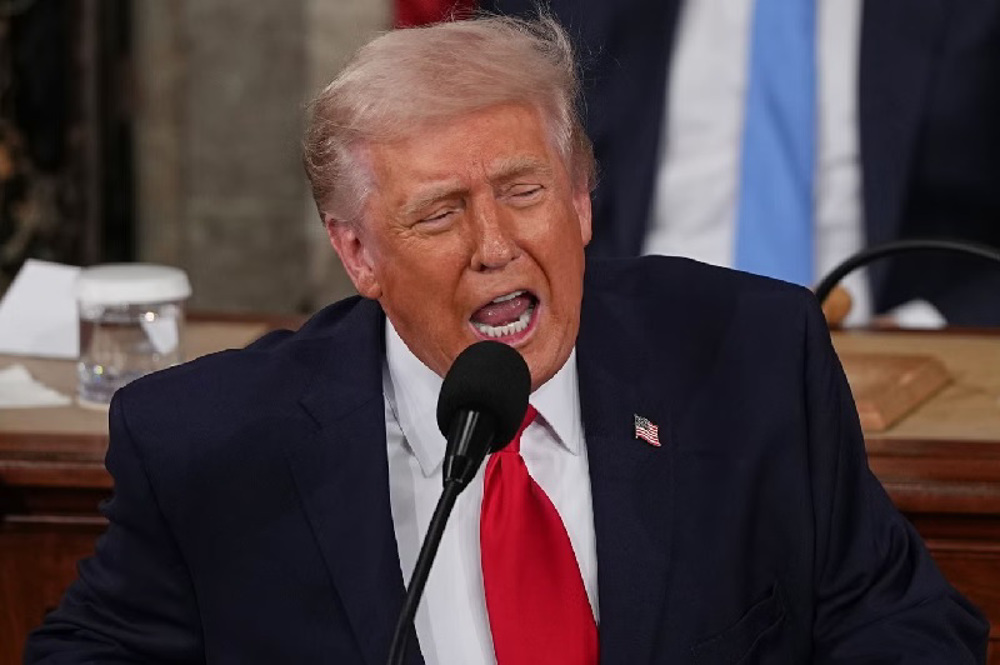




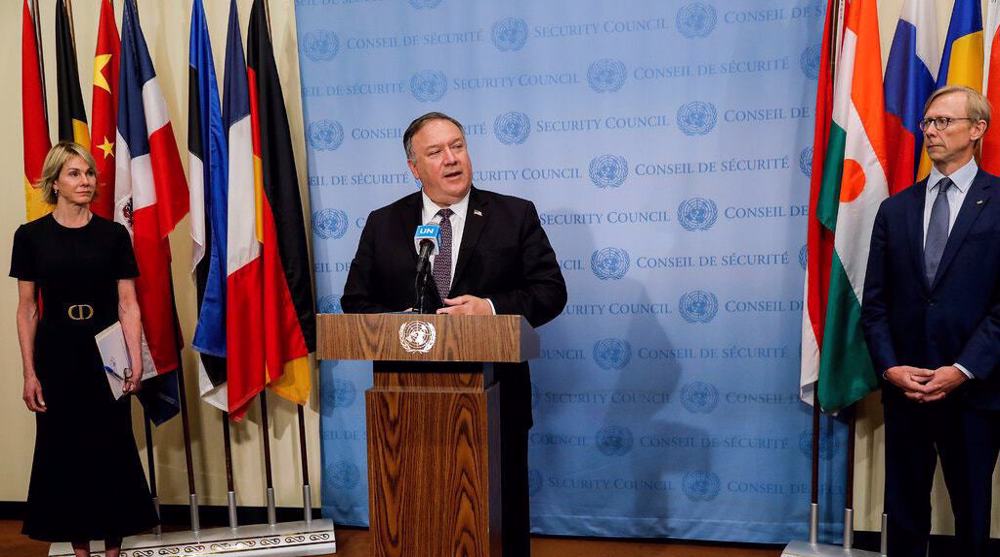
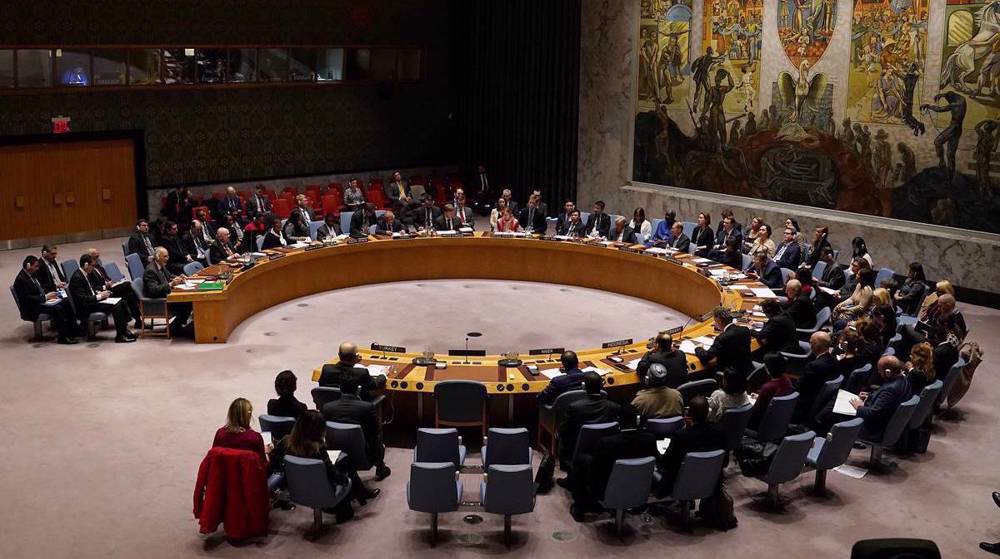
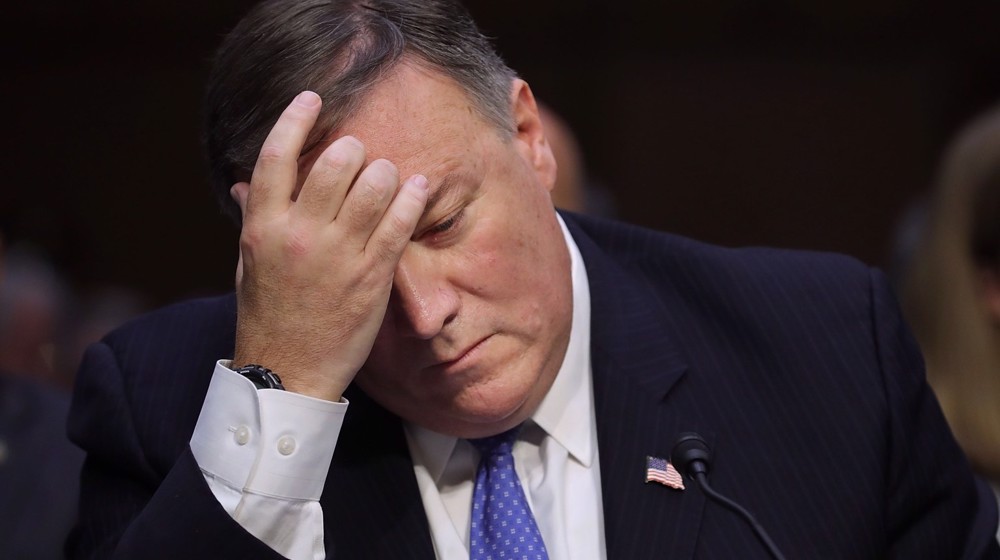


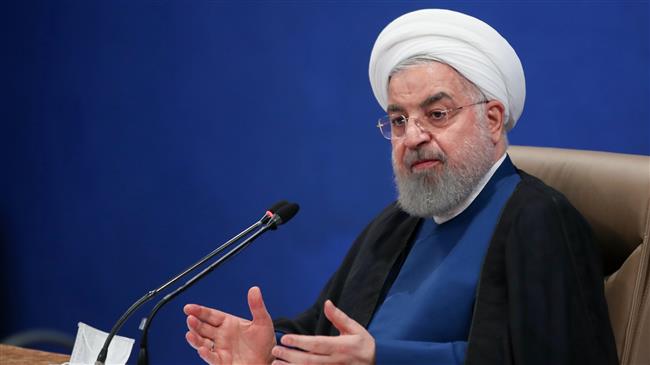
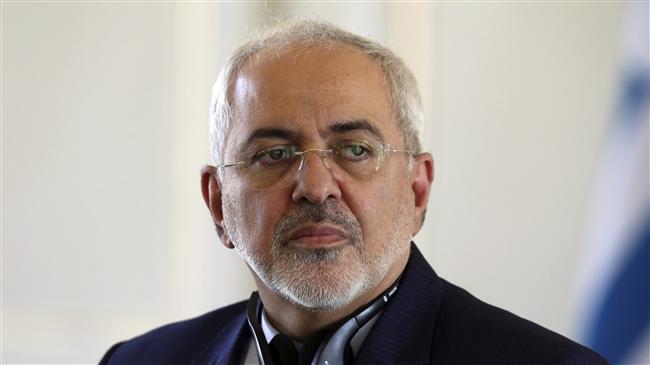

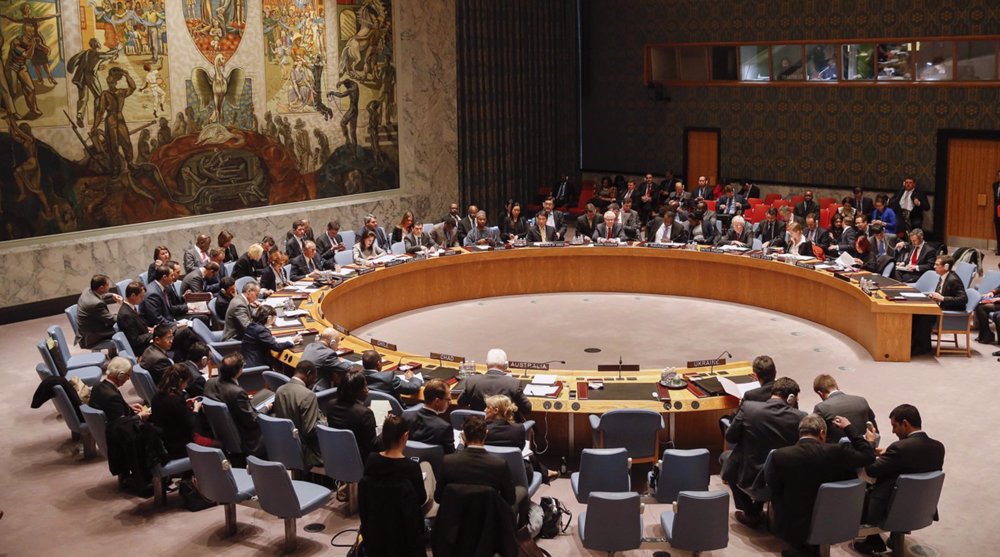
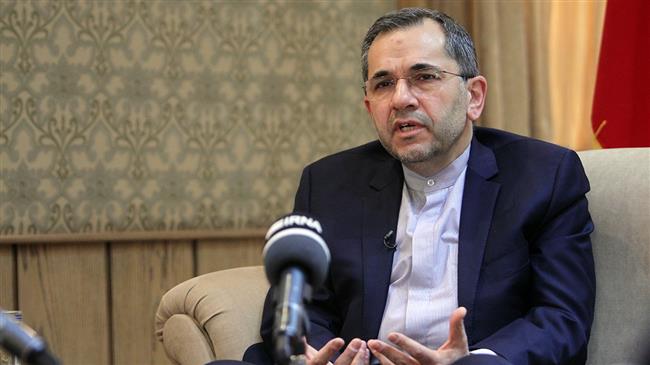

 This makes it easy to access the Press TV website
This makes it easy to access the Press TV website